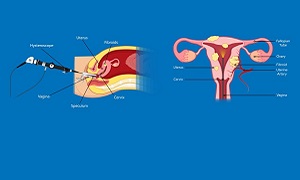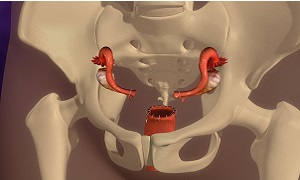Best Doctors in India for Menorrhagia (Heavy Menstrual Bleeding) Treatment
Best Hospitals in India for Menorrhagia (Heavy Menstrual Bleeding) Treatment
- City: Bengaluru, India
Hospital Highlights:
- Fortis Hospital Bannerghatta, Bengaluru was established in 2006.
- The hospital is a 276 bedded multi-specialty tertiary care facility.
- The hospital specializes in cutting-edge medical technology and dedicated patient care services.
- The hospital is equipped with state-of-the-art technologies like trans-radial angioplasty, trans-abdominal cardiac surgery, and computerized TKR navigation surgery.
- The hospital provides specialty medical services in cardiology, cardiac surgery, orthopedics, neurology, neuro-surgery, GI, and Minimal Access Surgery (MAS).
- City: Chennai, India
Hospital Highlights:
- Fortis Malar was established in 1992 and was formerly known as Malar Hospital.
- The hospital specializes in cutting-edge medical technology and dedicated patient care services.
- The hospital is multi-specialty, tertiary care facility with 180 beds.
- The hospital offers comprehensive medical care in specialties such as cardiology, cardio-thoracic surgery, neurology, neurosurgery, orthopedics, nephrology, gynecology, gastroenterology, urology, pediatrics, and diabetes.
- City: New Delhi, India
Hospital Highlights:
- Established in 1996, Pushpawati Singhania Research Institute is one of the top hospitals in the NCR region, as well as one of the top facilities in India for gastroenterology. The hospital is one of South Asia’s first institutes in medical and surgical treatment for diseases related to digestion.
- The hospital is equipped with state-of-the art facilities coupled with the latest equipment as well as renowned consultants from various parts of India as well as other parts of the world.
- City: New Delhi, India
Hospital Highlights:
- State-of-the-art technology and devoted healthcare professionals have been brought together under one roof at Venkateshwar Hospital to provide genuine medical care. The hospital’s professionals work together as a team to deliver the best possible treatment to their patients, using the most sophisticated equipment and information technology.
- Venkateshwar Hospital’s mission is to attain global excellence in healthcare by employing evidence-based, ethical clinical practices and cutting-edge technology by a team of highly skilled experts.
- City: New Delhi, India
Hospital Highlights:
- Sir Ganga Ram Hospital, New Delhi is known to provide the latest medical procedures with the latest technology in all of its units.
- The hospital has a team of reputed doctors, nurses, and healthcare professionals that ensure that patients receive quality care at affordable costs.
- Staffed with a team of highly qualified doctors, dedicated nurses, and paramedical and non-medical staff, the hospital aims to lead in healthcare delivery, medical education, training, and research.
- As per the vision of the founder, the hospital also provides free treatment to the economically weaker sections of society.
- Sir Ganga Ram Hospital also provides training to young doctors under the Diplomate in National Board(DNB) program. The DNB program at the hospital was started in 1984 and it is known for currently running the maximum number of DNB specialties in the country. It also has the distinction of having the first bone bank in India.
- City: Kerala, India
Hospital Highlights:
- Established in 2019, Apollo Adlux Hospital is the first Apollo Hospital in Kerala and the 73rd hospital owned by Apollo Group in India. With the state’s most advanced, comprehensive healthcare infrastructure and cutting-edge technologies, Apollo Adlux Hospital stands as an example of medical excellence in Kerala.
- With over 34 multi-specialty departments, the hospital believes in providing the best quality treatment to its patients at affordable rates, ensuring comfort at their difficult times.
- The 300-bed hospital is managed by a team of highly qualified and experienced experts who delivers exceptional hospitality to their patients and treats them with great compassion.
- With its affiliation with the Apollo Hospitals Group, the hospital aims in providing patients with top-notch healthcare services while also serving communities in Kerala.
- The hospital has good railway and road connections, and is conveniently close to Cochin International Airport.
- City: Gurugram, India
Hospital Highlights:
- Situated near DLF Cyber City, Gurugram, Narayana Superspecialty Hospital is one of the top medical facilities in the Delhi NCR region, catering to the needs of the people. Known for its commitment to quality medical care and patient service, the hospital is a state-of-the-art facility with planned and well-equipped sections, which includes a spacious OPD area as well as comfortable patient rooms.
- It is the closest super-specialty hospital from Indira Gandhi International Airport towards Gurugram, and also the nearest super specialty hospital from DLF Cyber City. It is also close to major residential areas in Gurugram.
- It is part of the renowned Narayana Health Group. Established in 2000, by Dr. Devi Shetty, a renowned cardiac surgeon, it has grown to be one fo India’s leading healthcare groups.
- City: Noida, India
Hospital Highlights:
- Fortis Hospital, Noida, stands as one of the oldest and most trusted healthcare institutions in the region, setting a benchmark for comprehensive medical care.
- As the second mega hub hospital in the Fortis Healthcare Group, Fortis Hospital, Noida, upholds a legacy of trust among more than 1.2 million patients. By integrating top-tier professionals with cutting-edge technology, the hospital delivers superior treatment across various medical disciplines.
- Specializing in advanced Neurosciences, Orthopedics, Kidney and Liver Transplant Programmes, Fortis Hospital, Noida has successfully performed over 1,500 transplants, solidifying its reputation as a leader in specialized medical interventions.
Menorrhagia (Heavy Menstrual Bleeding)
When a woman suffers from menstrual periods with abnormally prolonged or heavy bleeding, it is termed as menorrhagia. Around 1 in every 20 women is known to have menorrhagia.
Sometimes, the bleeding can get very heavy, and even require changing a tampon or pad every two hours. It can also mean passing clots the size of a quarter or even larger.
If left untreated, menorrhagia can cause anemia. The heavy bleeding can also affect sleep, and lead to abdominal pain, and make enjoyable activities a burden.
If you are experiencing weakness and disruption to everyday life, because of heavy bleeding, then you can talk to your doctor for treatment options.
Symptoms
The signs and symptoms of this condition include the following:
- Soaking through more than a single sanitary pad or tampons every hour for several consecutive hours
- Needing to wake up and change sanitary protection during the night
- Needing to use double sanitary protection to control the menstrual flow
- Bleeding for more than one week
- Passing blood clots larger than a quarter
- Symptoms of anemia, which can include tiredness, fatigue or shortness of breath
- Restricting daily activities because of heavy menstrual flow
It is noteworthy that the symptoms of menorrhagia might resemble other conditions or medical issues, and therefore it is important to talk to your healthcare provider for a diagnosis.
Causes
Sometimes, the cause of heavy menstrual bleeding is unknown, but a number of conditions can lead to menorrhagia. Some of the causes are:
Hormone imbalance- In a regular menstrual cycle, a balance between the hormones estrogen and progesterone helps to regulate the buildup of the lining of the uterus, i.e. endometrium, which is shed during menstruation. If there is a hormone imbalance, the endometrium develops in excess and sheds eventually, through heavy menstrual bleeding.
There are multiple conditions that can lead to hormone imbalances, including polycystic ovary syndrome, insulin resistance, obesity, and thyroid problems.
Polyps- Small, benign growths on the lining of the uterus i.e. uterine polyps, can also lead to heavy or prolonged menstrual bleeding.
Adenomyosis– This condition is known to occur when glands from the endometrium become embedded in the uterine muscle, which causes heavy bleeding as well as painful periods.
Dysfunction of the ovaries- If your ovaries don’t release an egg during a menstrual cycle, then your body is not producing the hormone progesterone, as it would during a normal menstrual cycle. This might lead to hormone imbalance, eventually resulting in menorrhagia.
Uterine fibroids- These are noncancerous tumors of the uterus and they appear during your childbearing years. Uterine fibroids can also cause prolonged or heavier menstrual bleeding.
Intrauterine device- Menorrhagia can also be a side effect of using a non-hormonal intrauterine device for birth control. You can discuss with your doctor to plan any alternative management options.
Inherited bleeding disorders- Some bleeding disorders, for example, von Willebrand’s disease, a condition in which an important blood-clotting factor is deficient or impaired, may also lead to abnormal menstrual bleeding.
Medications- Certain medications, including anti-inflammatory medications, hormonal medications, and anticoagulants can also contribute to heavy or prolonged menstrual bleeding.
Pregnancy complications- A single, heavy, late period can be caused by a miscarriage. An unusual location of the placenta can also lead to heavy bleeding during pregnancy.
Cancer- Uterine cancer and cervical cancer can lead to excessive menstrual bleeding as well.
Other medical conditions- There are multiple other medical conditions, including liver or kidney disease, which may also be associated with menorrhagia.
Diagnosis
To diagnose your condition, your healthcare provider is going to ask you regarding your medical history, as well as your periods. You will also need to undergo a physical exam, including a pelvic exam. You will likely be asked to keep a track of your periods and how many tampons and pads you require for a few months.
Your doctor may recommend one or more of the following tests:
Blood tests
Pap test
Ultrasound
Biopsy
Examining a tissue sample from the uterine lining can help your healthcare provider to find cancer or other abnormal tissue.
Hysteroscopy
Treatments
Treatment for this condition depends on the seriousness of your bleeding, and the causes, your health, age as well as your medical history. Treatment also depends on how you respond to certain medications and your wants and needs. You may not want to have a period at all, or just want to reduce the amount of bleeding. If you are not having anemia, you may even choose to skip treatment.
Some of the treatments include:
- Iron supplements to put more iron into your blood
- Birth control to make periods more regular as well as to reduce bleeding
- Medications for reducing any pain and amount of bleeding
- Antifibrinolytic medicines in order to reduce the bleeding
- Desmopressin nasal spray to stop the bleeding for certain bleeding disorders
- Intrauterine contraception to make periods more regular and reduce bleeding
- Hormone therapy to reduce the bleeding
You might also need surgical treatment if medications are unsuccessful. Some of the procedures that might be recommended include:
Focused ultrasound surgery
Myomectomy
Endometrial ablation
Endometrial resection
Hysterectomy
Complications
Excessive or prolonged menstrual bleeding might lead to some other medical conditions, which includes:
- Anemia- Menorrhagia can lead to blood loss anemia as it reduces the number of circulating red blood cells. The number of circulating red blood cells is measured by hemoglobin, a protein that helps to enable red blood cells to carry oxygen to the tissues. Iron deficiency anemia occurs when your body uses your iron stores to make more hemoglobin, as your body attempts to make up for the lost red blood cells. Signs and symptoms can include pale skin, fatigue, and weakness. Diet also plays a role in iron deficiency anemia, and heavy menstrual periods make the problem further complicated.
- Severe pain- Along with heavy menstrual bleeding, you might also experience painful menstrual cramps. Sometimes the cramps which are associated with menorrhagia can also be severe enough to require medical evaluation.














